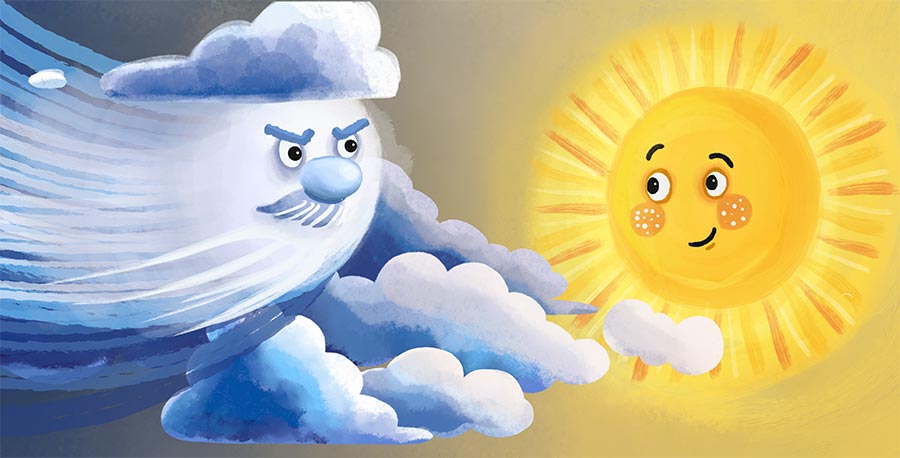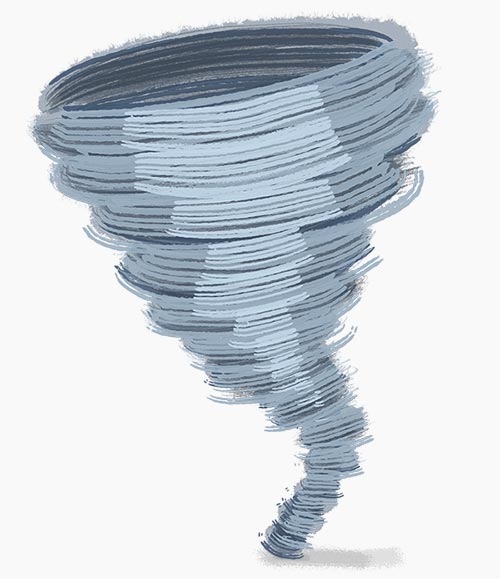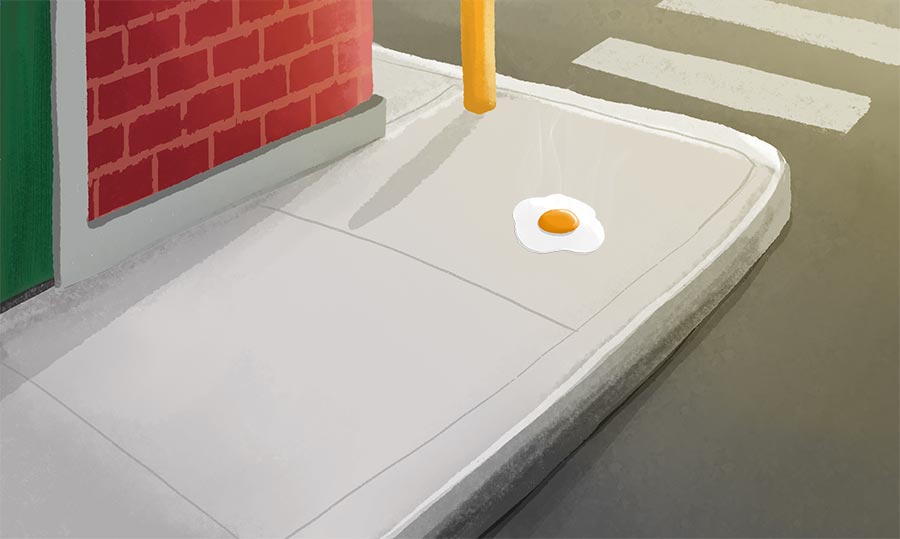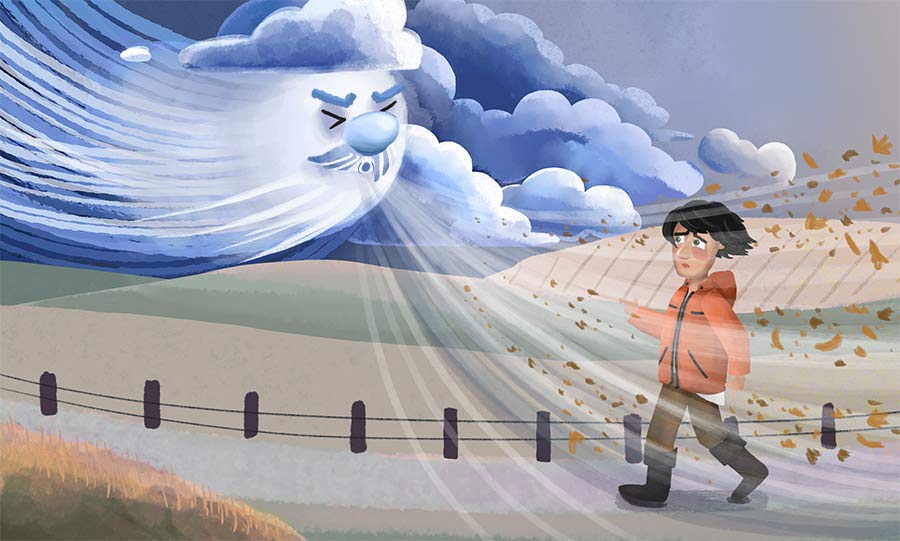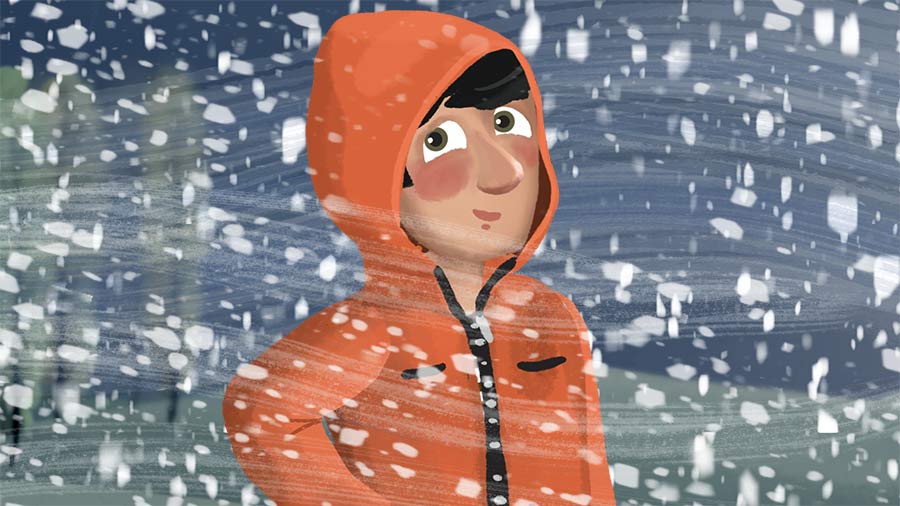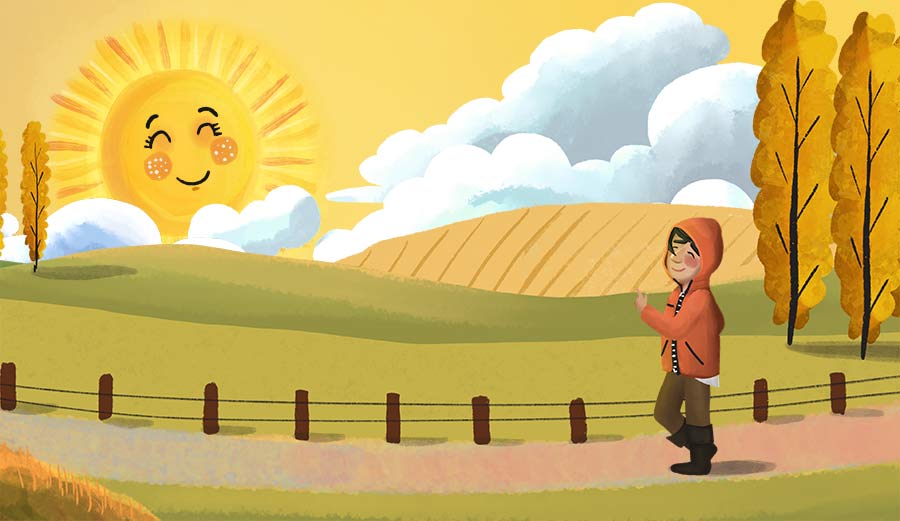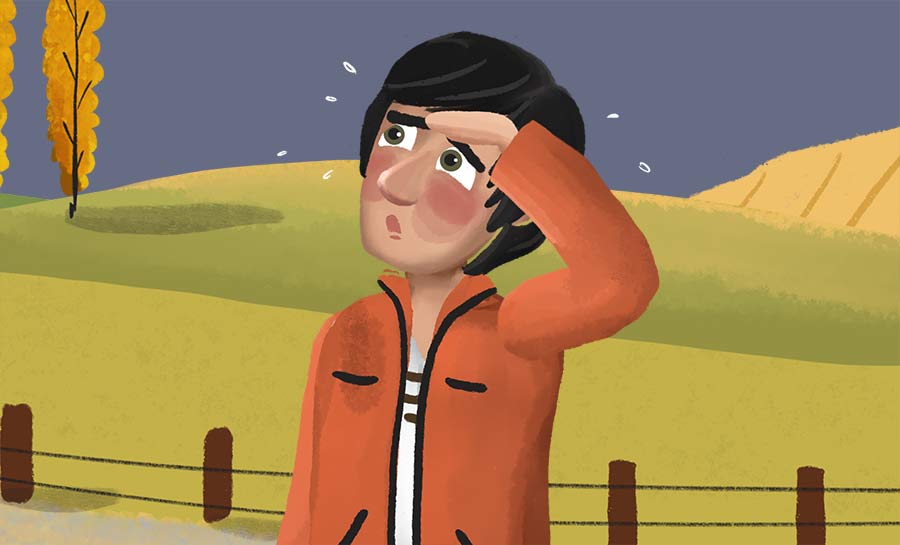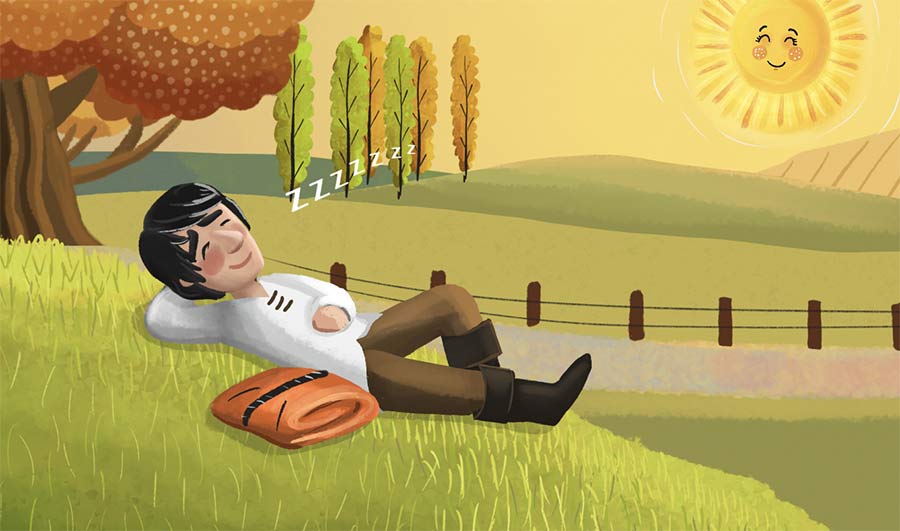Il vento e il sole stanno discutendo.
“Sono io il più potente!” grida il vento.
“No, sono io il più potente!” dice il sole.
The wind and the sun are arguing.
“I am the most powerful!” shouts the wind.
“No, I am the most powerful*” says the sun.
* Note that he says “sono io” instead of “io sono”. This is to put the emphasis on the subject “I” (“io”)
“Io posso abbattere gli alberi!” si vanta il vento. “Posso spingere le navi sugli oceani. Posso creare uragani e tornado!”
“I can knock down trees!” boasts the wind. “I can push ships across the oceans. I can create hurricanes and tornadoes!”
“Oh, veramente?” risponde il sole. “Io posso far sciogliere degli enormi mucchi di neve. Posso prosciugare un intero lago. Posso far diventare l’asfalto così caldo, che ci puoi cuocere un uovo sopra!”
“Oh really?” replies the sun. “I can melt huge piles of snow. I can dry up an entire lake. I can make asphalt so hot, that you can cook an egg on it!”
Proprio in quel momento, vedono un uomo con una giacca a vento che passeggia in strada.
Just then, they see a man in a wind jacket walking down the street.
“Facciamo una gara per vedere chi è il più potente,” dice il vento. “Chiunque riuscirà per primo a far togliere il giubbotto a quell’uomo, vince.”
“Let’s have a competition to see who is the most powerful,” says the wind. “Whoever manages (first) to get the jacket off that man, wins.”
Il sole accetta la sfida.
Comincia il vento. Soffia del vento gelido addosso all’uomo.
The sun accepts the challenge.
The wind goes first. (Literally “the wind begins.”) He blows cold wind on the man.
L’uomo trema e tira su la lampo del giubbotto.
“Brrr! Che giornata fredda e ventosa!” dice.
The man shivers and pulls up the zipper of his jacket.
“Brrr! What a cold and windy day!” he says.
Comincia a piovere. Il vento soffia ancora più forte e trasforma la pioggia in neve.
It starts to rain. The wind blows even harder and transforms the rain into snow.
“Be’, guarda un po’!" dice l’uomo. "Ha cominciato a nevicare! Il meteo oggi non metteva neve...”
Alza il cappuccio per coprirsi la testa.
“Well, look at that!” (Literally, “look a bit!”) says the man. “It has started snowing! The weather forecast today didn’t mention snow…" (Literally "didn't put snow*") He raises his hood to cover his head.
* A colloquial way to talk about the weather forecast
Il vento rivolge contro l’uomo una raffica fortissima, ma il giubbotto dell’uomo resta lì dov’è.
“Brr! Dev’essere in arrivo una tempesta,” dice l’uomo. Alza ancora di più la lampo del giubbotto, fino a coprirsi il naso.
The wind blows a very strong gust against the man, but the man’s jacket stays where it is.
“Brr! A storm must be coming,” says the man. He zips up his jacket (literally: raises the zipper) even more, until he covers his nose.
“Bah! È impossibile,” dice il vento e smette di soffiare.
“Tocca a me!” dice il sole.
“Bah. It’s impossible!” says the wind, and stops blowing.
“My turn!” says the sun.
Prima il sole brilla per far smettere di nevicare. L’uomo si scopre il viso.
First the sun shines to stop the snow. The man uncovers his face.
Poi il sole allontana le nuvole e brilla dolcemente sull’uomo. D’improvviso, ecco che è una bellissima giornata di primavera.
Then the sun pushes the clouds away and gently shines on the man. Suddenly, it is a beautiful spring day.
“Caspita. Certo che qui il tempo è strano!” dice l’uomo. Apre la lampo del giubbotto.
“Wow. The weather sure is strange here!” says the man. He unzips his jacket.
Il sole agita dolcemente le dita per aumentare la temperatura.
The sun gently wiggles his fingers to raise the temperature.
“Che tempo strano. Ora sembra estate!” dice l’uomo cominciando a sudare. “Che caldo che fa!”
“What strange weather. Now it seems like summer!” says the man, starting to sweat. “How hot it is!” (Literally: “what hot it makes!”)
Si toglie il giubbotto invernale. Si distende sull’erba per schiacciare un pisolino sotto il sole caldo.
He takes off his winter jacket. He lays down on the grass to have a nap in the hot sun.
“Ho vinto!” dice il sole, raggiante.
“I won!” says the sun, beaming*.
* “Raggiante” literally means “to radiate rays of light”, but it is also used to say that someone is particularly happy.

Morale: Non sempre vince chi è più forte. A volte si ottiene di più con la gentilezza.
Moral: It’s not always the strongest who wins. (Literally: Does not always win, who is stronger) Sometimes you can achieve more with kindness.
Download this audio
Need help? How to download audio to your device


